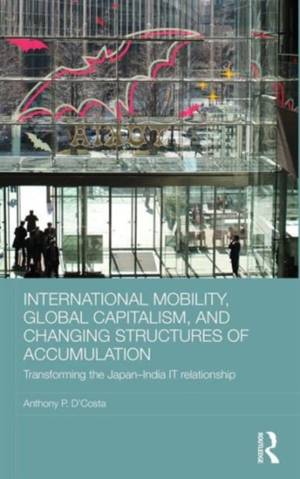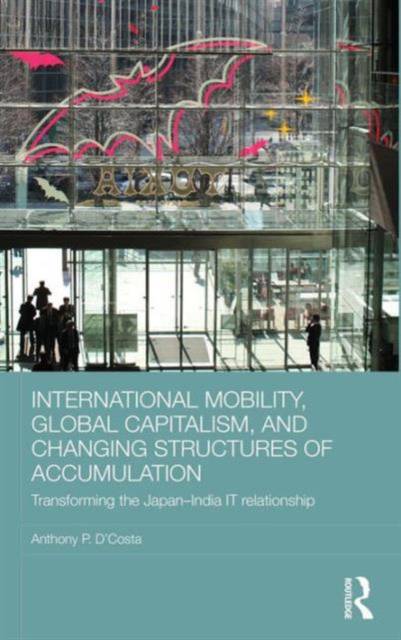
- Retrait gratuit dans votre magasin Club
- 7.000.000 titres dans notre catalogue
- Payer en toute sécurité
- Toujours un magasin près de chez vous
- Retrait gratuit dans votre magasin Club
- 7.000.0000 titres dans notre catalogue
- Payer en toute sécurité
- Toujours un magasin près de chez vous
International Mobility, Global Capitalism, and Changing Structures of Accumulation
Transforming the Japan-India It Relationship
Anthony P D'CostaDescription
International mobility is not a new concept as people have moved throughout history, voluntarily and forcibly, for personal, familial, economic, political, and professional reasons. Yet, the mobility of technical talent in the global economy is relatively new, largely voluntary, structurally determined by market forces, and influenced by immigration policies.
With over a decade's worth of extensive research in India, Japan, Finland, and Singapore, this book provides an alternative understanding of how capitalism functions at the global level by specifically analyzing the international movement of technical professionals between India and Japan. There are three factors that inform this study: the services transition away from manufacturing, the movement of technical professionals in the world economy, and the demographic crisis facing Japan. The dynamics of changing capitalism are examined by theorizing the emergence of the services sector in the USA and Japan, analyzing the pronounced social inequality in India that is the basis for the global supply of highly skilled technical professionals, and providing considerable empirical data on the flows of professionals to these two countries to indicate Japan's institutional inflexibility in accommodating foreign talent. The author anticipates that Japanese industry will shed some of its institutional rigidity due to the pressures of competition and the scarcity of technical professionals.
Providing a wealth of information on the topic of international mobility, this book is an essential addition for scholars and students in the field of International Development, Business Studies, Asian Studies, Migration Studies, and Political Economy.
Spécifications
Parties prenantes
- Auteur(s) :
- Editeur:
Contenu
- Nombre de pages :
- 238
- Langue:
- Anglais
- Collection :
Caractéristiques
- EAN:
- 9780415564953
- Date de parution :
- 23-11-15
- Format:
- Livre relié
- Format numérique:
- Genaaid
- Dimensions :
- 156 mm x 234 mm
- Poids :
- 544 g

Les avis
Nous publions uniquement les avis qui respectent les conditions requises. Consultez nos conditions pour les avis.






